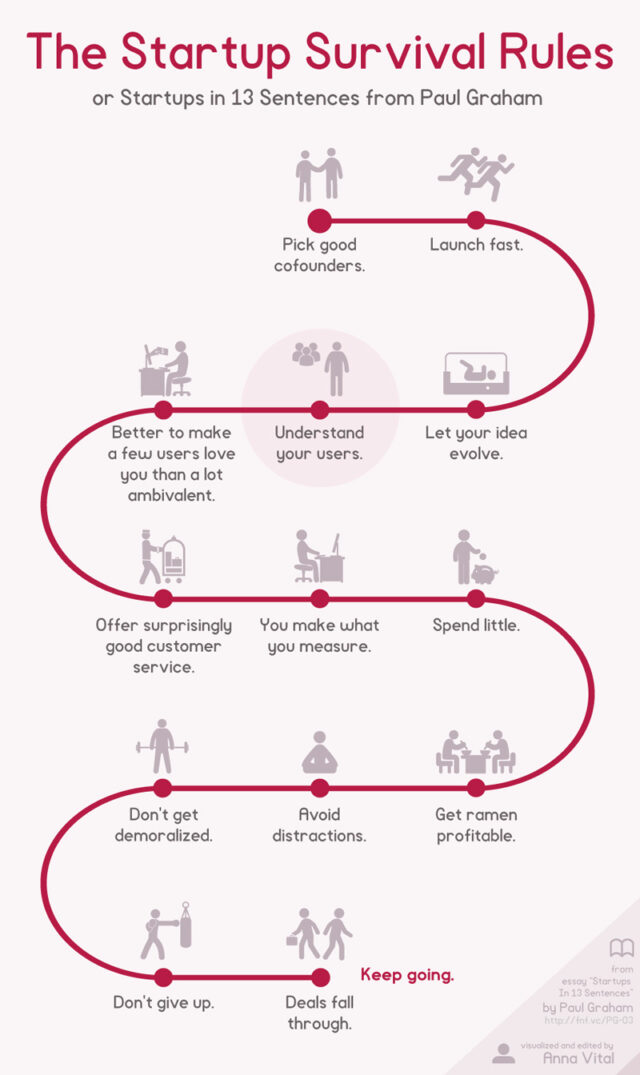
The startup business concept is relatively new, so the methods of sustaining it are still being defined. The term revolves around mostly young and technology oriented companies that originated from innovative ideas or solution lacking problems. It can consist of many different activities and operations, usually conceived by a small group of people and intended to rapidly progress. We gathered up some advice on how to realize your startup endeavors successfully from Paul Graham, an expert in the subject.
The first rule would be to pick adequate cofounders. He describes it as ‘picking location for real estate’. That is how this aspect is important, because it is something you can very hardly change later on. Your ideas and decisions might be changed, but your partner or partners will always be there and participate in those decisions that will finally determine the functions of your project. The next advice is to launch fast. The faster you start, the faster you can develop and repair any faults in your project, make it more appealing to customers. That is the moment that will be clarifying to you in which direction the venture should be going. Once you have launched, review your ideas repeatedly and don’t treat them as self-sufficient. They ought to be implemented and allowed to sprout new ideas.
The next important step would be to understand the needs of users. Many successful startups originated from something their founders wanted or needed, so they decided to take the matter in their own hands and create it themselves. If there is something that needs improving and you manage to do it, it qualifies as a contribution to the quality of a user’s life. Continue to contribute and the number of engaging users will grow. Those two are main parameters in bringing success to your project, with a following remark: it is better to make a few users love you than a lot of them ambivalent. Of course you desire numerous users, but the quality comes before quantity in this case. What you offer is new and it has to be made solid, verified. So in the beginning chose to fully satisfy a certain number of clients in order to know how great your product really is. There will be time to expand on those grounds later on.
Every business owner should follow the motto of offering good customer service. Our empirical experience proves that to be untrue. So what you should do is not only providing with good customer service, but making it surprisingly good. It’s really simple, make them happy and they won’t be able to shake it off. People do appreciate to be treated differently in a rare positive direction.
Be organized and make business plans from which you can learn whether you achieve them or not. Paul Graham says you make what you measure. Furthermore, don’t fly too high and then take bad fall in terms of money spending. Make sure your startup is cheap, and has no unnecessary budget leaks. In the beginning it is enough for your start up to be ‘ramen profitable’. That means that you’re doing a good job if you make enough to cover basic life expenses.
Keep in mind that distractions like fundraising and side-jobs slowly kill the potential of your startup. When immediate pay gets mentioned you’ll certainly interrupt working on startup activities. Try to avoid those as much as you can. Keep the focus and don’t let its absence to be the future cause of your startup’s failure. Starting a project can be a hard weight, so build your willpower and do not give up. In startups simply not giving up can actually get you somewhere – so bare that in mind.
The final advice is to get used to deals falling through. Some of them can surely be considered background operations that shouldn’t be treated as a substantial loss. Keep going. You can do it even with a small number of users – as long as those users are happy users.
All this advices you can see in the infographic with startup survival rules which are putted in timeline for better understanding:














